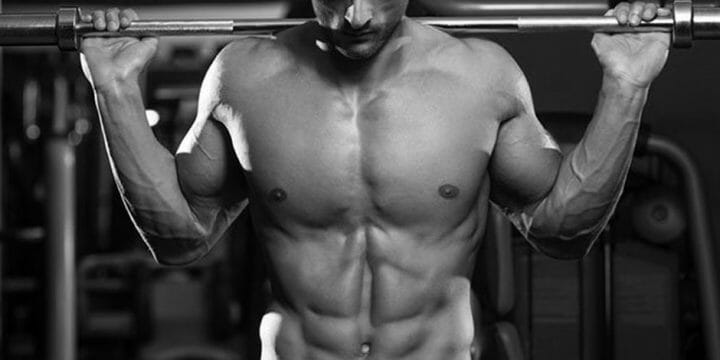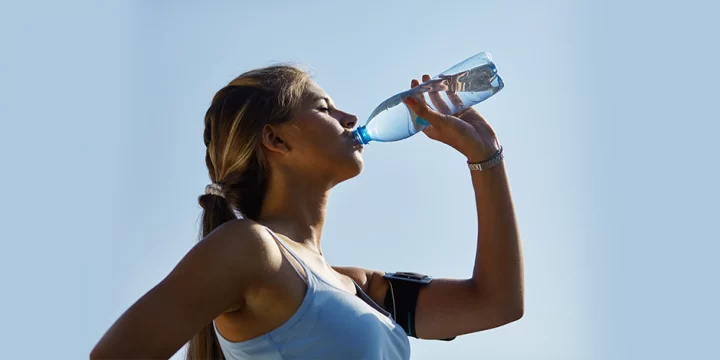What you take before your workout is just as important as what you take after it. Pre-workouts and energy drinks are some of the most popular and effective products consumed by many young gym enthusiasts before working out.
Both of them can have a positive effect on your physical performance, but which one does it better?
To determine this, I paired up with a dietician to study my clients. We divided them into two groups: the pre-workout group and the energy drink group. Here’s what I found.
Quick Summary
- Pre-workouts are specifically designed to optimize workout sessions for enhanced effectiveness, whereas energy drinks offer a convenient and rapid energy boost.
- Caffeine, BCAAs, beta-alanine, creatine monohydrate, and beetroot extract are some ingredients found in pre-workouts.
- Globally, energy drinks are widely favored by young athletes, with around 41.7% using them to improve endurance performance.
- Although both supplements can enhance performance, I recommend that my clients choose pre-workouts that I've personally found effective in achieving my fitness goals.
Main Difference Between Pre-Workout and Energy Drinks

The main difference between energy and pre-workout drinks lies in their impact on your body.
Energy drinks are formulated to provide a rapid energy boost, while pre-workouts are specifically crafted to enhance the effectiveness of your workout.
As a fitness trainer, I've noticed that my energy tends to decline rapidly when consuming energy drinks, whereas with pre-workouts, I can endure more repetitions during workouts.
Other Differences Between Energy Drinks and Pre-Workout
You can also differentiate energy drinks from pre-workouts based on the following:
- Consumption: Energy drinks, enjoyed for their flavorful nature, are often consumed slowly, leading to a gradual onset of effects. In contrast, pre-workouts are taken swiftly, allowing for a faster absorption of caffeine and quicker energy delivery.
- Form: Energy drinks come primarily in liquid form, while pre-workouts are in powdered form, requiring mixing with water.
- Caloric content: Energy drinks usually contain 50–100 calories (unless they are zero-calorie variants), while most pre-workouts are low in calories or calorie-free.
Another major difference between the two is their pre-workout ingredients. Let’s take a better look.
Ingredients Found in Energy and Pre-Workout Drinks

Most pre-workout supplements typically include a combination of the following ingredients:
- Caffeine: Medical News Today reports that caffeine can enhance both physical and mental performance during exercise [1].
- BCAAs (branched-chain amino acids): Research from the National Institute of Health suggests that these amino acids can improve exercise performance and aid in functional recovery [2].
- Beetroot or pomegranate extract: The National Institute of Health indicates that beetroot may help reduce high blood pressure [3].
- Beta-alanine: According to WebMD, beta-alanine, an essential amino acid, improves muscle size and performance [4].
- Creatine monohydrate: WebMD notes that creatine monohydrate, a naturally occurring chemical, can assist in muscle recovery [5].
- L-Citrulline: Research from the National Health Institute suggests that L-Citrulline can increase blood flow in muscles [6].
- L-Glutamine: Medical News Today states that L-Glutamine can provide a significant energy boost before a workout [7].
- Other vasodilators: The National Institute of Health suggests that these substances enable greater blood flow into muscles [8].
- B vitamins: As per the National Institute of Health, taking pre-workouts with B vitamins can notably boost agility and reaction time [9].
On the other hand, the typical energy drink contains some or all of these ingredients:
- Ginseng: The National Institute of Health suggests that ginseng may increase testosterone and aid in exercise performance, although solid data supporting this claim is lacking [10].
- Taurine: The Journal of the International Society of Sports Nutrition indicates that taurine may help assist in muscle recovery [11].
- Green tea extract: ScienceDaily reports that green tea, when used as a pre-workout, may improve exercise endurance [12].
- Green coffee extract: A popular supplement, as per Medical News Today, that may contribute to weight loss [13].
- Guarana: WebMD cautions that guarana, a plant native to the Amazon containing caffeine, can be dangerous in large amounts [14].
- Ginkgo biloba: A well-known supplement, noted for its potential to improve brain function, according to Medical News Today [15].
- Carnitine: The National Institute of Health describes carnitine as a compound playing a critical role in energy production [16].
- Sugar, B vitamins, and caffeine
It's important to note that both energy drinks and pre-workout supplements commonly include caffeine and vitamin B. Energy drinks typically rely on sugar for sweetness (except for sugar-free options), while most pre-workout drinks use artificial sweeteners.
Benefits

The immediate benefits of pre-workouts and energy drinks, as observed and reported by clients, include:
- Increased energy levels before working out.
- Boost in athletic performance.
- Enhanced muscle endurance during lifting.
It's crucial to note that these reported benefits were observed in clients who maintained a well-regulated sleep schedule, adequate water consumption, and a balanced diet.
Energy drinks and pre-workouts both contain high caffeine content. So, make sure you take them at appropriate times of the day so that you can see the results of your exercise session.
What You Should Choose Before a Workout

What you choose will depend on your workout goals.
If you’re aiming to lose weight fast and improve your muscle definition, then we’d suggest going for a pre-workout because it has almost no calories and zero sugar.
However, if you’re on a time crunch and need a quick energy shot, choose an energy drink brand that has zero calories.
If you’re planning to bulk up fast and would like to add on calories, then energy drinks may be a better option.
However, given that most of them are high in sugar, we recommend going with pre-workout powders.
“Most of these [energy] drinks contain anywhere from 70 to 200 mg of caffeine per serving (equivalent to one to two 1-ounce espressos), which can trigger heart palpitations, the jitters, and insomnia…One popular brand has 62 g of sugar — the same as nearly two candy bars!”
- Dr. Tasneem Bhatia, MD
Related Article: Is It Safe to Mix Pre-Workout with Energy Drinks?
FAQs
Where Can You Buy Pre-Workout and Energy Drinks?
You can buy pre-workout and energy drinks online or at most convenience stores. However, certain pre-workouts are exclusively available in online or physical supplement stores.
Can Energy Drinks Replace Pre-Workout Supplements?
Yes, energy drinks can replace pre-workout supplements. They often serve as effective pre-workout options, containing caffeine and stimulants to enhance physical and mental focus before exercising.
Can You Overdose on Energy Drinks or Pre-Workout?
Yes, overdosing on energy drinks or pre-workout is possible. These products contain stimulants, and exceeding the recommended dosage on the product label can lead to adverse effects. Always adhere to the specified guidelines to ensure safety.
How to Get Energized Before a Workout?
References:
- https://www.medicalnewstoday.com/articles/coffee-before-workout
- https://www.ncbi.nlm.nih.gov/pmc/articles/PMC4241904/
- https://www.ncbi.nlm.nih.gov/pmc/articles/PMC5563971/
- https://www.webmd.com/vitamins/ai/ingredientmono-1222/beta-alanine
- https://www.webmd.com/men/creatine
- https://www.ncbi.nlm.nih.gov/pmc/articles/PMC5999519/
- https://www.medicalnewstoday.com/articles/320850#l-glutamine-deficiency
- https://www.ncbi.nlm.nih.gov/books/NBK554423/
- https://www.ncbi.nlm.nih.gov/pmc/articles/PMC3361498/
- https://www.ncbi.nlm.nih.gov/pmc/articles/PMC5102849/
- https://jissn.biomedcentral.com/articles/10.1186/s12970-021-00438-0
- https://www.sciencedaily.com/releases/2005/01/050128221248.htm
- https://www.medicalnewstoday.com/articles/318611
- https://www.webmd.com/vitamins/ai/ingredientmono-935/guarana
- https://www.medicalnewstoday.com/articles/263105
- https://ods.od.nih.gov/factsheets/Carnitine-HealthProfessional/
About The Author
You May Also Like







I always felt jittery after using energy drinks for workouts, but pre-workout seems to give me cleaner energy without the crash.